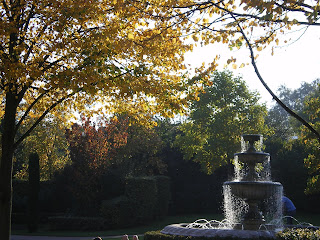
Last week I wrote about the definition and structure of culture in order to frame future discussion. But as with most structures, they are hard to understand until you see them built upon and applied (like the skeletal system supporting the other systems). Anyways, this week I decided to summarize the rise of evangelicals to “power” positions in culture: media, business, politics and academics. They certainly do not represent all of American Christianity but they represent a culturally powerful group that represents Christianity outside of the subculture to a large degree. This will only be a cursory review of the areas in order for us to get to Part 3 for discussion of the role of the church, of community, and “calling” in engaging with those areas. Here are some quotes:
Martin Luther: “The very ablest of youth should be reserved and educated not for the office of preaching, but for government, because in preaching the Holy Spirit does it all, whereas, in government one must exercise reason in the shadowy realms where ambiguity and uncertainty are the order of the day.”
Mark Knoll wrote The Scandal of the Evangelical Mind in 1994 with a disparaging tone for the incredible lack of evangelical academic achievement. But today he says he would have written it with “a different tone—more hopeful than despairing, more attuned to possibilities than to problems, more concerned with theological resources than theological problems.”
The 2005 host for Inside Edition gave this response to a Christian's surprise at being invited on the show: “Didn't you know? Christian is the new gay”.
I utilized much of the research done by Michael Lindsay in Faith in the Halls of Power where he summarized his personal interviews of over 300 Christians in power positions-well written and thorough but long and academic so be prepared.
Summary: Despite Christians losing many of their positions of influence by the mid-21st c, we have been active in higher education, remembered the importance of the arts and entertainment, and utilized religious expression in the workplace. Expressive language, symbolic action and creativity have brought faith into the public consciousness through networking naturally yet intentionally. Christian leaders in business, academia, media, and politics do not have much individual power, but they have “convening power”: the power to bring disparate people together, which is potent for a rising movement. Their orthodoxy has flexibility or elasticity that allows them to hold to their convictions while cooperating with those that don't.
But what do they want to do with this cultural power? Who do they want to serve? Answering this reveals a divide: one group directs their efforts inwardly, what some have called “Populist Evangelicalism” while another group directs their efforts outward, what some call “Cosmopolitan Evangelicalism”. The Populist group depends on mass mobilization and large-scale democratic action by creating a dichotomy between traditional and secular activists and promoting theological simplicity and pragmatism. Focus on the Family's Washington for Jesus Rally and Moral Majority, Jerry Falwell, Joel Olsteen are key leaders in this group. The Cosmopolitan group tries to distance itself from the Populist group, come from various backgrounds, have greater access to powerful institutions; most came to faith after high school. They travel constantly and are involved in the arts and live affluently. Both are zealous in living out their faith, but they act on their convictions differently. Cosmopolitan evangelicals have small, invitation-only gatherings of elite social and professional peers, and slowly affect politics through equipping leaders. Populist evangelicals aim for mass rallies like stadium events, and mobilize and push for immediate legislation. Cosmopolitan evangelical efforts take more time to succeed than the Populist ones, but theirs will have a more lasting impact. Populist evangelicals' primary aim is to convert their opponent religiously, politically, socially, etc. whereas the Cosmopolitan ones focus on establishing “legitimacy” with their opponents. Despite their differences, these two groups do not divide over political lines as much. My hunch is that this is because they both are largely removed from the world of economic inequality.

Remaining questions for Part 3
Do these cultural elite Christians need the church? Do I? If poverty is being cut off from cultural power then who will use their influence instead of further impoverishing people through willful ignorance?Do we need God's guidance or the church's support? Only 20% of evangelicals nationally recall talking with their pastor about their job in the past year. It is tempting to speak and live as if the onus was completely on us as individuals to change the world and transform culture- a clear loss of a communitarian ethic. How do we exercise our cultural power? What does it mean to have communal discernment? What should characterize our lives as culture makers? Can we really change anything? How we discern our calling? Who is involved?










